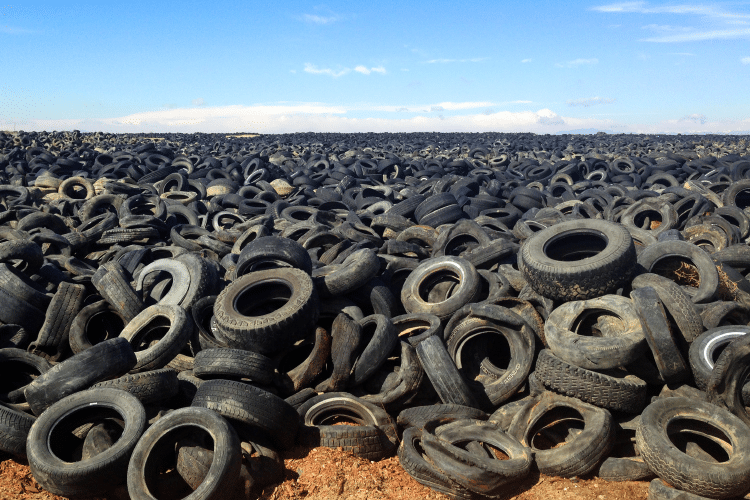In 2020, a striking new structure split the sky in Chicago’s Lakeshore East neighborhood.
Cloaked in blue-green glass that conjures up nearby Lake Michigan and the Chicago River, The St. Regis Chicago, a project of the Magellan Development Group, boasts 275 luxury condominiums, 21 penthouse suites and a five-star hotel. With its three undulating and nested towers, it’s an inspired addition to a cityscape of architectural wonders—and one that engaged an uncommon number of women, whose contributions started even before construction began.
Jeanne Gang of Studio Gang, architect and MacArthur Fellow, can lay claim to designing the tallest structure in the world by a woman—101 stories, 1,198 feet. To create the sculptural flow, Gang alternated and repeated frustums—12-story pyramids with the top sliced off—right-side up, then upside down. Instead of the typical glass rectangle on end, the structure has eight corners, expanding the prospects for light and air and elegantly enclosing 1.9 million square feet.
Women’s contributions extended to every step of building the $1 billion structure.
Patricia McHugh, owner and chairman of McHugh Construction, the building’s general contractor, is the fourth generation of her family to run the firm but the first woman. Despite making up only 10.9% of the construction workforce, according to the U.S. Bureau of Labor Statistics, women appeared on the St. Regis construction site in every capacity. Below are the stories of three—a veteran project manager, laborer turned safety manager and new college graduate.
Melissa Tompkins, project manager, 26 years
The St. Regis depended on two project managers: one for the hotel and Tompkins for the residential side. Tompkins’ daily routine involved managing schedules and budget, checking quality of materials arriving on-site, overseeing more than 100 subcontractors and working as a liaison between owners, designers and construction workers.
Construction of the St. Regis occurred during the COVID-19 pandemic. Safety was paramount to ensure workers were following protocols from the Centers for Disease Control and Prevention (CDC) for social distancing, mask wearing, hand washing, signage and access. “Getting the workforce safely up to higher floors in a high-rise building required careful planning,” Tompkins said. “But simple things like having lunch together were no longer possible.”
Also unsettling were continual supply chain issues, especially when overseas suppliers couldn’t deliver materials on time. “It truly had a domino effect and pushed activities out of sequence,” Tomkins said. “You have to strategize to keep the schedule moving and people working.” The key was selecting alternative materials that would fit the schedule and budget.

Tompkins studied construction engineering management at Purdue University in West Lafayette, Indiana, after giving construction an on-the-job tryout as an intern. After more than two decades in the industry and 15 years at McHugh, she’s highly organized and detailed—must-haves for success as a project manager.
And she has another key skill: communications. “If a problem arises, I’m a strong advocate for getting all the parties in one room or on a call to discuss issues and come up with resolutions.”
Over the years, Tompkins has seen substantial change in how she’s treated in a male-dominated field. “I tried to remain optimistic, because I knew at some point the mindset or social awareness would change,” she said. “The focus would be on what you know, not on your gender, race or age.” Tompkins has enjoyed support from other women in the industry who, like her, have moved up to senior positions over the course of their careers.
At the end of the day, what keeps Tompkins going is knowing she and her coworkers made it home to their families without incident. Tompkins and her husband and son love nothing better than watching action and animation movies, eating popcorn and candy, and running their own commentary.
Her advice for women thinking about construction careers: “Find a network of other women in the industry, because it really helps to have a support group.”
Rachael Dolecki, safety manager, 10 years
For Rachael Dolecki, simply making it up to every floor in the St. Regis to do her job during construction was tough. But another factor came into play as well. In high rises, hitting “typical”—the point where all floor layouts are the same—increases safety risks. Workers let their guard down, meaning Dolecki and her coworkers needed to double down on safety. “I could be at the top and the hole covers or netting I’d replaced many floors below might have been removed or put back incorrectly,” Dolecki said.
In addition to her work in safety management, Dolecki also enforced CDC guidelines, tracked positive COVID-19 tests and traced contacts to determine which subcontractors needed to be notified that they might be at risk.
Dolecki took a winding path to her construction career. She studied psychology at Barat College in Lake Forest, Illinois, on a volleyball scholarship, but lost motivation and quit school in her senior year. After working various jobs, Dolecki jokingly asked her dad, a tradesman, to get her a job as a flagger. He came through, and Dolecki found herself flagging for concrete structures at Lurie Children’s Hospital in Chicago.
From there, Dolecki landed a position as a deck monitor, but after OSHA standards for fall protection changed, she moved into safety management. McHugh sent her to an OSHA class for certification—six months, twice a week, three hours a night, along with working full time.
Every day, Dolecki visits multiple jobsites, making sure everyone complies with OSHA regulations. “I give them respect and I want the respect back,” Dolecki said. “As a safety manager, the workers know I have the authority to throw them off the job.”
When she’s not at work, Dolecki is busy ferrying her three teenage daughters to their sporting events with her husband, a pipefitter. She’s proud to point out the St. Regis and note that she was on the job from the time it was a hole in the ground. “It’s a great accomplishment and amazing knowing I was part of it,” she added.
Her advice for women thinking about construction careers: “Do it! Rise up to the challenge and prove that you belong.”
Shelby Griffin, concrete project manager, 5 years
Shelby Griffin has worked for McHugh since she graduated from college. She spent her first 2½ years as a project engineer on the St. Regis until it topped off. “My previous work with concrete had been designing and building parking lots and sidewalks with #4 rebar, so it was a huge transition to move to #18 rebar as big around as my arm,” Griffin said.
Originally from Oak Forest, Illinois, Griffin has always loved everything about construction. “I was the kid looking through the fence to see what was being built,” she recalled. Griffin earned a civil engineering degree from Purdue University but realized she didn’t like being in an office. That shifted her focus to construction engineering and a graduate degree at Illinois Institute of Technology.

To withstand Chicago’s notorious winds howling off Lake Michigan, the St. Regis designers depended on high-strength concrete. The schedule required pouring a floor every three days. After the floor set, the team would lay out vertical elements, getting columns and walls ready for ironworkers to start work on the next deck.
When problems come up, Griffin relies on her engineering background to help her think them through. “If you’re all working together, there’s not a problem you can’t figure out,” she said. “Coordination and communication are the key.”
Griffin believes programs to introduce young women into construction earlier would increase awareness of the many roles they can take on. Once at McHugh, she was delighted that Patty McHugh organizes speaker luncheons to give the company’s women a way to get to know each other.
Griffin loves seeing all the paperwork and plans at the outset of a construction project, and then watching as the team brings the building to life. When she’s not working, she’s still outdoors—running, hiking and traveling.
Her advice on entering construction: “Go for it. I don’t think you’d have any more challenges than in another industry, except for finding workboots that aren’t pink and work jeans for women. You need to come in with confidence but ask for help when you need it.”















